Understanding which foods are high in tryptophan can be helpful for individuals looking to boost their serotonin levels or improve their sleep quality. In addition, dietary tryptophan has been linked to other health benefits, such as reducing symptoms of depression and anxiety, and improving cognitive function. For these reasons, incorporating tryptophan-rich foods into one’s diet can be a simple and effective way to support overall health and well-being. Below we will talk through why Tryptophan is important and the Top 10 foods with Tryptophan.
Tryptophan is an amino acid that plays a crucial role in the human body. It is a precursor to serotonin, a neurotransmitter that regulates mood, appetite, and sleep. Tryptophan is also involved in the production of niacin, a B-vitamin that is essential for energy metabolism. While tryptophan is found in many foods, some are richer in this amino acid than others.
KEY TAKEAWAYS
- Tryptophan is an amino acid that is important for the production of serotonin and niacin in the body.
- 10 Foods that are high in tryptophan include: Turkey; Seeds; Eggs; Milk; Tofu: Cheese; Fish; Nuts; Beef and Soy.
- Incorporating tryptophan-rich foods into one’s diet is a simple and effective way to support overall well-being.
Understanding Tryptophan
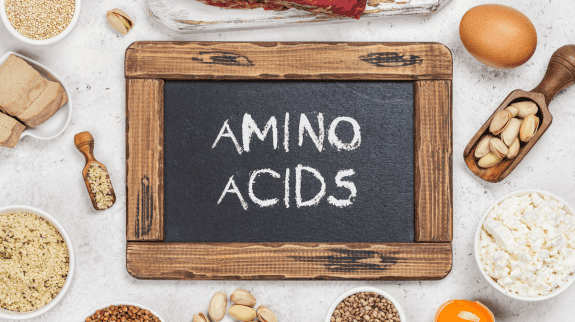
Tryptophan is an essential amino acid that is important for the human body to function properly. It is one of the 20 amino acids that make up proteins in the body.
Tryptophan is not produced by the body and must be obtained through the diet. Foods that are high in protein, such as meat, fish, poultry, eggs, and dairy products, are good sources of tryptophan. Additionally, plant-based sources of tryptophan include nuts, seeds, beans, and whole grains.
The body uses tryptophan to make proteins and other important molecules. Tryptophan is also converted to serotonin in both the body and brain, which can affect mood, appetite, and sleep. Additionally, tryptophan is converted to niacin, which is important for energy production and maintaining healthy skin, nerves, and digestion.
It is important to note that while tryptophan is an essential amino acid, consuming large amounts of tryptophan supplements can have negative side effects. High doses of tryptophan supplements have been linked to a rare but serious condition called eosinophilia-myalgia syndrome (EMS). Therefore, it is recommended to obtain tryptophan through a balanced diet rather than supplements.
Tryptophan and Serotonin
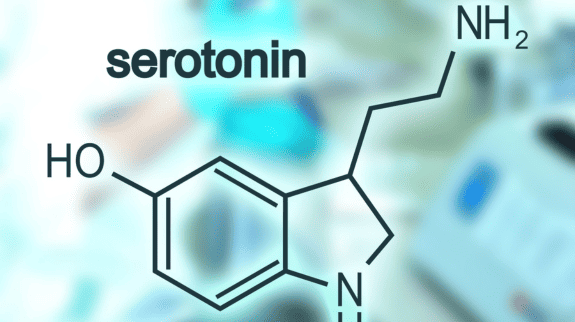
Serotonin is produced in the brain and the gut, and it is responsible for regulating many physiological processes. It is often referred to as the “feel-good” neurotransmitter because of its role in regulating mood and emotions.
Low levels of serotonin have been linked to depression, anxiety, and other mood disorders. Increasing the availability of tryptophan in the body can lead to increased serotonin production, which can improve mood and reduce symptoms of depression and anxiety.
It is important to note that simply increasing tryptophan intake may not be enough to increase serotonin levels in the brain. Tryptophan must compete with other amino acids to cross the blood-brain barrier and enter the brain. Additionally, the production of serotonin also requires other nutrients such as vitamin B6 and iron.
Supplements such as 5-HTP, which is a precursor to serotonin, are sometimes used to increase serotonin levels in the body. However, it is important to speak with a healthcare professional before using any supplements.
Tryptophan and Sleep

Several studies have shown that tryptophan supplementation can improve sleep quality and reduce the time it takes to fall asleep. In a dose-response study, subjects who were given tryptophan experienced less daytime sleepiness and increased total sleep time compared to those who were given a placebo. Another study found that tryptophan supplementation improved sleep quality in patients with insomnia.
Tryptophan is often used as a natural remedy for sleep disorders, such as insomnia and sleep apnea. It is also commonly used to reduce drowsiness and improve alertness during the day.
Tryptophan in Diet
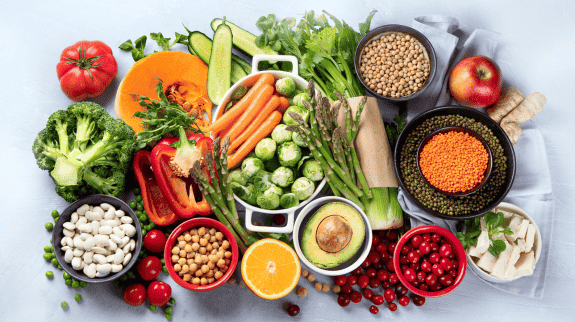
Tryptophan is not produced by the body, so it must be obtained from the diet. Foods that are high in protein, such as meat, fish, and eggs, are good sources of tryptophan. Carbohydrates can also increase the uptake of tryptophan into the brain, which can help to boost serotonin levels.
Foods that are high in fiber, such as whole grains, fruits, and vegetables, can also be good sources of tryptophan. Fiber helps to slow down the digestion of food, which can help to increase the absorption of tryptophan into the bloodstream.
The recommended daily intake (RDI) of tryptophan for adults is around 4-5 mg per kilogram of body weight. However, the actual amount of tryptophan that a person needs can vary depending on their age, sex, and activity level.
Top 10 Foods with Tryptophan
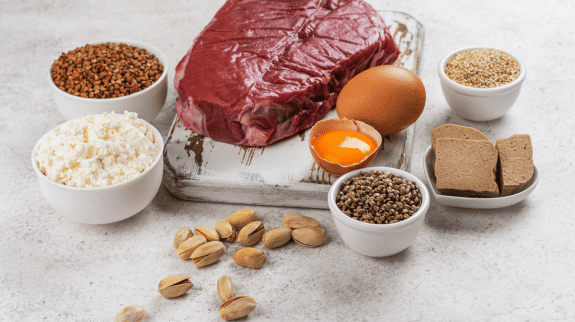
Here are the top 10 foods that are rich in tryptophan:
- Turkey: Turkey is known for being high in tryptophan. A 3-ounce serving of roasted turkey contains approximately 250-300 mg of tryptophan.
- Seeds: Seeds such as pumpkin seeds and sesame seeds are also a great source of tryptophan. A quarter cup of pumpkin seeds contains approximately 190 mg of tryptophan.
- Eggs: Eggs are a versatile food that can be eaten in a variety of ways. A large egg contains approximately 95 mg of tryptophan.
- Milk: Milk is a good source of tryptophan, with one cup containing approximately 120 mg of tryptophan.
- Tofu: Tofu is a great source of tryptophan for vegetarians and vegans. A half cup of firm tofu contains approximately 110 mg of tryptophan.
- Cheese: Cheese is a good source of tryptophan, with one ounce of cheddar cheese containing approximately 75 mg of tryptophan.
- Fish: Fish such as salmon and tuna are rich in tryptophan. A 3-ounce serving of salmon contains approximately 150-200 mg of tryptophan.
- Nuts: Nuts such as almonds and cashews are a good source of tryptophan. A quarter cup of almonds contains approximately 80 mg of tryptophan.
- Beef: Beef is a good source of tryptophan, with a 3-ounce serving of cooked beef containing approximately 200 mg of tryptophan.
- Soy: Soy products such as edamame and tofu are a great source of tryptophan. A half cup of edamame contains approximately 75 mg of tryptophan.
Incorporating these top 10 foods into one’s diet can help increase tryptophan intake. However, it is important to note that tryptophan is just one of many other essential amino acids needed for a healthy diet.
Tryptophan in Plant-Based Foods
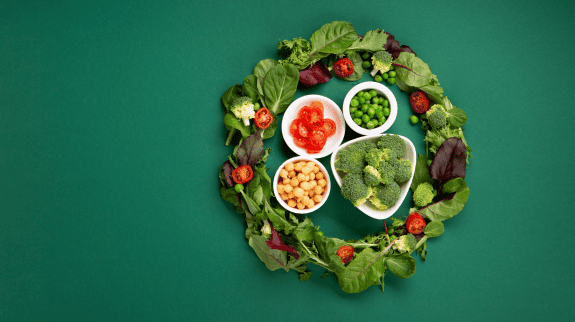
Plant-based foods are an excellent source of tryptophan, and there are many options available for those who follow a vegan or vegetarian diet.
Tofu is a popular plant-based protein source that is also high in tryptophan. One hundred grams of firm tofu contains approximately 108 mg of tryptophan.
Beans and legumes are another excellent source of tryptophan, with one cup of cooked black beans containing approximately 209 mg of tryptophan.
Oatmeal is a nutritious breakfast option that is also high in tryptophan. One cup of cooked oatmeal contains approximately 32 mg of tryptophan.
Pumpkin seeds are a great snack option that is also high in tryptophan, with one ounce of pumpkin seeds containing approximately 74 mg of tryptophan.
Edamame is a popular appetizer in Japanese cuisine that is also high in tryptophan. One cup of cooked edamame contains approximately 116 mg of tryptophan.
Squash is a versatile vegetable that is also high in tryptophan, with one cup of cooked butternut squash containing approximately 58 mg of tryptophan.
Quinoa is a complete protein that is also high in tryptophan, with one cup of cooked quinoa containing approximately 118 mg of tryptophan.
Nuts and seeds are another excellent source of tryptophan, with one ounce of almonds containing approximately 77 mg of tryptophan, and one ounce of sesame seeds containing approximately 89 mg of tryptophan.
Tryptophan Supplements
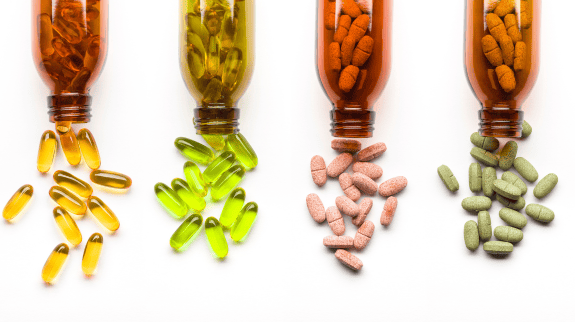
Tryptophan supplements are a popular way to increase the levels of this essential amino acid in the body. They are available in various forms such as capsules, tablets, and powders. Tryptophan supplements are often used to treat mood disorders, sleep disorders, and anxiety.
While tryptophan supplements are generally considered safe, they can cause side effects in some people. Common side effects include nausea, dizziness, and headaches. In rare cases, tryptophan supplements can cause a serious condition called eosinophilia-myalgia syndrome (EMS). Therefore, it is important to consult a healthcare professional before taking tryptophan supplements.
Tryptophan in Special Diets
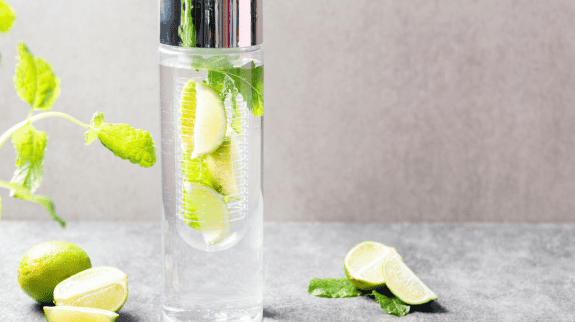
For people with specific dietary requirements, such as those with diabetes or pregnant women, consuming a special diet may be necessary. These diets may limit the intake of certain foods, making it challenging to meet the daily requirements of foods high in tryptophan alone. In such cases, a healthcare provider or a registered dietitian can provide guidance on how to include tryptophan-rich foods in the diet.
Frequently Asked Questions
Can a low tryptophan diet affect mood?
Yes, a low tryptophan diet can affect mood. Tryptophan is an essential amino acid that the body needs to produce serotonin, a neurotransmitter that regulates mood, appetite, and sleep. Low levels of serotonin have been linked to depression, anxiety, and other mood disorders.
How does tryptophan affect serotonin levels?
Tryptophan is a precursor to serotonin. When tryptophan is consumed, it is converted into serotonin in the brain. Consuming foods that are high in tryptophan can increase serotonin levels and improve mood.
Does tryptophan really make you sleepy?
Tryptophan is often associated with causing drowsiness because it is a precursor to serotonin, which can be converted into melatonin, a hormone that regulates sleep. However, the amount of tryptophan in food is usually not enough to cause significant drowsiness on its own.
Which food has more tryptophan, chicken or turkey?
Turkey is often thought of as the food with the highest levels of tryptophan, but chicken actually contains slightly more tryptophan per serving. Other sources of tryptophan include fish, cheese, eggs soy milk, and soybeans.
What are some fruits and vegetables that are high in tryptophan?
Fruits and vegetables are not typically high in tryptophan, but some sources include bananas, dates, and avocados. Other sources of tryptophan include nuts, seeds, and legumes.

